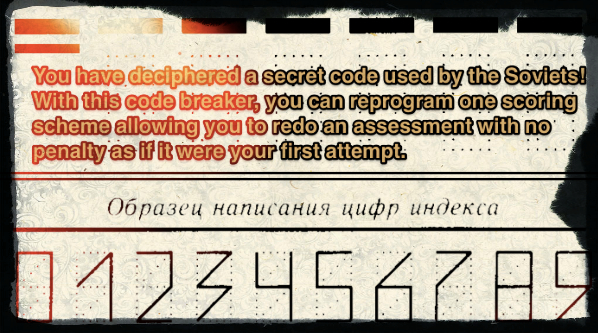Gamification 101: Designing Your Playbook Beyond Levels Part IV
It has been a busy couple of weeks! I just returned from the ISTE conference, which was an exhilarating, exhausting experience, but I will save my reflections for another post.
As you can see I presented at the conference. For those of you who did not attend, which includes probably everyone who reads this blog, here is a link to the how-to-guide that I created to go along with the presentation and my blog posts. This is a good place to start if you have no experience with games or gamification as I have included links to tons of helpful resources that have helped me along the way.
In my last post I discussed selecting your content and choosing a level structure for your game. This of course is something that we as teachers do everyday when planning our lessons and units. This should be the easy part! Having said that, here are a couple of things to keep in mind before committing to your game if you are planning on creating a long-term game (more than 2-3 lessons):
Remember, do yourself a favor and start small. If you are one of those people who adheres to the mantra "Go big or go home!" then I would advise you to lock all future levels beyond the one that your students are working on. This inspires curiosity creating a sense of heightened anticipation, which is motivating to your students. It also gives you a chance to call audibles and change things up. Get rid of things that don't work and add in things that do. Your first game will be a lot of trial and error, so give yourself a break as you will be doing a lot of "building the plane while you are flying it" your first time through.
Once you have selected your content, it starts to get a little messy. There are three main parts that you have to deal with: the content, the narrative, and the mechanics. There is no right way to approach designing your game, so if the creativity hits you, go for it and focus on the narrative and the mechanics when you are in your flow. For others it will be helpful especially your first time through to focus on the content structure first and then embellish it afterwards. I used the latter approach for my first game, but for the two that I am working on now, I am all over the place! Below is a snapshot of my process.
The Dilemma:
At ASB we follow a trimester system, so students take a trimester of chemistry in 9th grade and then a second trimester in 10th grade. Because I work at an international school with a transient population, every year in 10th grade, I get several new students who have never had chemistry before. I also have a handful of students who could us a solid review of 9th grade chemistry if you know what I mean. When there are only 50-60 students per grade level, this is a significant percentage of my students. Having said that, it is not fair to hold the others back. To address this issue, I designed a self-paced chemistry review using online resources via our LMS. The problem is that students are not as motivated to truly learn (read practice and/or memorize problem solving strategies) especially those who are further behind than others as they tend to skip the necessary repetition to catch up with their peers. So I have decided to gamify the review in hopes that the game itself will help to motivate the students to take the time required to build a solid foundation. None of the tasks associated with the review will be graded. They will all be formative assessments.
My game will have 4 levels. I arrived at this number by analyzing the content and determining the natural breaks in terms of difficulty and complexity. So my level structure for this one is easy to hard/more complex. This is where it gets messy. The narrative exploded on the scene before the rest of the structure fell into place for me. So I went with the flow. As a result, I can only share how I have designed the game thus far, but it will give you an idea as to how to get started.
The example posted above shows the first task in the game. Students will be assigned basic vocabulary that they will need to accomplish the first level of tasks (electron, proton, etc.) I have created a set of online flashcards on Quizlet that will be shared with the class. Quizlet has both a built-in self-testing tool as well as two games that students can play for practice. I will play one of the games, and set the "score to beat". Prior to the quiz, I will encourage grinding by holding a class game competition. I will set a deadline (before they can sit for their first quiz) and the top three scorers who managed to beat my score on the word game will receive a code breaker card. These tchotchkes are essentially a subeconomy in the game that will confer special privileges to the students in possession of the card. Students will be allowed to barter and trade these cards on the black market as part of the game to purchase equipment for their laboratories if they choose not to use the privilege themselves.
The card pictured above will essentially grant the student the right to retake a future quiz with no penalty (reduced amount of rubles earned, higher penalties for missed questions, eligibility for other tchotchkes). Note that by locking levels/ challenges beyond this one, I will be able to read when it is necessary to offer a privilege like this again and to whom to ensure that all students stay motivated and in their personal flow. All students will be awarded Rubles based on the number of questions that they get correct on their quiz. They may retake the quiz as many times as necessary, but their earning potential is smaller for each subsequent attempt. This encourages students to get it right on their first attempt, as you don't want students to waste too much time on retakes due to a lack of effort or preparation.
As the game progresses, students will be able to use their rubles and tchotchkes to buy lab equipment on the black market (such as a bunsen burner) to upgrade their lab from an underground bunker to the next level. There will also be surprise challenges like a chemistry scavenger hunt through the school using their knowledge of chemical elements and compounds to decode their search which can earn them equipment, tchotchkes or rubles.
Takeaways:
- Small manageable chunk of content
- Assessments allow for quick grading (program does it for me) to provide students with immediate feedback
- mechanics selected (game competition, tchotchke award for top 3, ruble amounts) all motivate students to thoroughly learn the vocabulary required
- Tchotchkes are designed to help avoid flow anxiety later in the game.
- Students that don't make the top three in the game will most likely have played it enough times to learn the vocabulary which will earn them a sufficient amount of rubles without having to retake the quiz.
More to come as I flesh the rest of this out! In the meantime, here is a link to a list of mechanics you might want to consider using in your game as you design your playbook.




